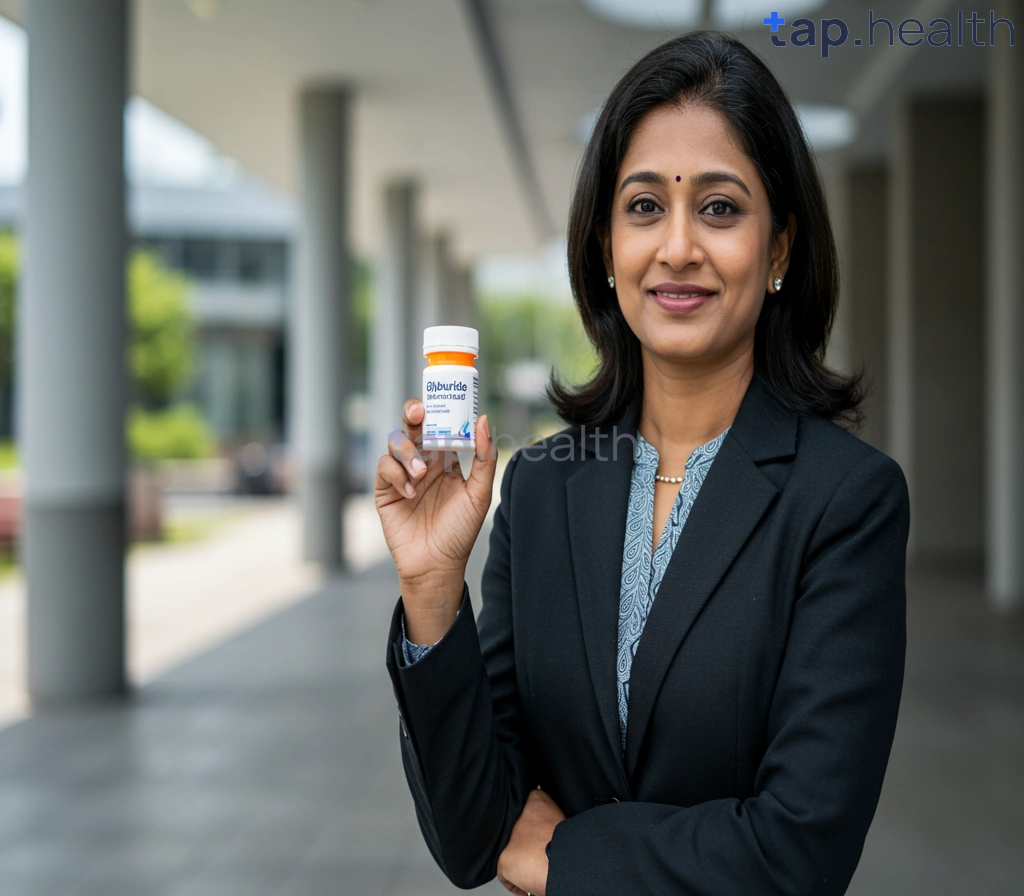Table of Contents
- Revolutionizing T1D: Novel Biomarkers for Better Glucose Control
- Unlocking Better Glucose Control: Promising Biomarkers in Type 1 Diabetes
- Top Biomarkers for Improved Glucose Management in Type 1 Diabetes
- Early Detection & Improved T1D Management: The Role of Novel Biomarkers
- A Guide to Novel Biomarkers: Enhancing Type 1 Diabetes Glucose Control
- Frequently Asked Questions
- References
Living with type 1 diabetes means constantly navigating the challenges of glucose management. It’s a balancing act, and current methods, while helpful, aren’t always perfect. That’s why researchers are tirelessly working on developing Novel Biomarkers for Improved Glucose Control in Type 1 Diabetes. This blog will explore the exciting advancements in this field, examining the potential of new biomarkers to revolutionize how we monitor and treat this condition, ultimately leading to better quality of life for those affected. Get ready to discover how these breakthroughs could change everything.
Revolutionizing T1D: Novel Biomarkers for Better Glucose Control
The struggle for effective glucose control in Type 1 Diabetes (T1D) is a significant concern globally, particularly impacting populations in India and other tropical countries. Studies reveal that HbA1c levels exceeding 9% are reported in over 30% of diabetes patients, highlighting a critical need for improved management strategies. This alarming statistic underscores the urgency for innovative approaches to better monitor and control blood sugar levels. Understanding how these elevated HbA1c levels impact the body’s overall balance is crucial, and you can learn more about that in our article on How Does Type 1 Diabetes Affect Homeostasis? Key Insights.
Unlocking the Potential of Novel Biomarkers
Current methods, primarily relying on HbA1c testing, offer a retrospective view of glucose control. Emerging research focuses on novel biomarkers offering real-time insights into metabolic processes. These advancements promise more precise monitoring, enabling proactive interventions and ultimately, better glycemic control. For example, continuous glucose monitoring (CGM) systems are gaining popularity, providing more frequent data points, which can be especially critical in managing the unpredictable nature of T1D.
Region-Specific Challenges & Opportunities
In India and tropical regions, factors like access to healthcare, affordability of advanced technologies, and diverse dietary habits pose unique challenges. However, these same regions also present opportunities for tailored interventions. Developing cost-effective, culturally sensitive strategies utilizing new biomarkers is crucial. Research focusing on locally relevant biomarkers and accessible monitoring technologies will be key to improving T1D management within these communities. For a deeper understanding of how to utilize HbA1c testing effectively, refer to our guide on How to Use an HBA1C Test to Track and Improve Diabetes.
Empowering Better T1D Management
Access to information and improved healthcare infrastructure are critical steps towards empowering individuals with T1D in India and tropical countries. Seeking regular medical check-ups, actively participating in diabetes education programs, and engaging in open dialogue with healthcare professionals about the latest advancements in biomarker technology are essential for achieving optimal glucose control. Let’s work together to revolutionize T1D management.
Unlocking Better Glucose Control: Promising Biomarkers in Type 1 Diabetes
Managing type 1 diabetes, especially in hot and humid climates prevalent across India and tropical countries, presents unique challenges. The burden is significant; approximately 2 million Americans live with this condition, including a substantial number of children and adolescents. Improved glucose control is paramount for preventing long-term complications, and research into novel biomarkers offers a beacon of hope.
The Promise of Biomarkers
Traditional methods of glucose monitoring, while crucial, often lack the predictive power needed for proactive management. New biomarkers, however, offer the potential to foresee impending hyper- or hypoglycemic events, allowing for timely interventions. This is especially vital in tropical climates, where fluctuating temperatures and humidity can significantly impact glucose levels. Research is exploring various candidates, including advanced glycation end products (AGEs) and specific inflammatory markers, to identify early indicators of glucose imbalance.
Regional Considerations and Practical Applications
For individuals in India and tropical countries, access to advanced technology and healthcare resources can be limited. Therefore, the development of cost-effective and easily accessible biomarker tests is crucial. Furthermore, cultural sensitivity and awareness campaigns are vital for widespread adoption. Simpler, less invasive testing methods, coupled with educational initiatives tailored to the specific needs of these regions, will be critical for improving outcomes. For more tips on daily management, check out 10 Daily Habits for Better Type 1 Diabetes Control.
Moving Forward
The discovery and implementation of novel biomarkers for type 1 diabetes hold immense promise for improving glucose control, especially in challenging environments. Further research, focused on developing accessible and affordable testing methods tailored to the unique needs of Indian and tropical populations, is essential. This will empower individuals to better manage their condition and lead healthier, more fulfilling lives. Seek advice from your healthcare provider to discuss the latest advancements in diabetes management and personalized treatment options. Remember that a Personalized Diabetes Control Plan can significantly improve your health outcomes.
Top Biomarkers for Improved Glucose Management in Type 1 Diabetes
While Type 1 diabetes doesn’t typically involve insulin resistance (unlike Type 2, where over 80% of cases have it as a key factor), effective glucose management remains crucial. Novel biomarkers offer exciting possibilities for personalized treatment and improved outcomes, particularly in diverse populations across India and tropical countries. Understanding these markers can significantly enhance the quality of life for individuals managing this condition.
Exploring Key Biomarkers
Research is increasingly focusing on identifying biomarkers that predict hypoglycemic events or reflect the overall effectiveness of treatment. These include advanced glycation end products (AGEs), inflammatory markers like C-reactive protein (CRP), and even certain genetic markers. Monitoring these biomarkers can provide early warnings of complications and allow for timely adjustments to insulin regimens or lifestyle interventions. For instance, elevated AGEs can indicate poor long-term glucose control, highlighting the need for stricter management. Similarly, tracking inflammatory markers can help identify individuals at higher risk of developing diabetic complications prevalent in tropical climates.
Practical Applications in India and Tropical Regions
The application of these biomarkers is particularly relevant in India and other tropical countries due to the high prevalence of diabetes and the unique challenges posed by climatic conditions and lifestyle factors. Access to regular monitoring and advanced diagnostics, however, remains a hurdle. Therefore, focusing on cost-effective and accessible methods of biomarker assessment is vital. This may involve incorporating simpler, point-of-care tests into routine diabetes management strategies within these regions. The development of easily interpretable tools for healthcare professionals and patients alike will improve adherence to treatment plans.
Actionable Steps for Improved Glucose Control
Regularly consulting with your endocrinologist is essential for personalized management plans. Discuss the possibility of biomarker testing and how these results can inform your treatment strategy. Adopting a healthy lifestyle, including regular exercise and a balanced diet appropriate for your region and culture, remains crucial. By proactively engaging with your healthcare provider and adopting a holistic approach, you can significantly improve your glucose control and long-term health outcomes. For more tips on effective management, check out our guide: 10 Proven Tips for Effective Diabetes Management. Understanding the immune system’s role is also important; learn more about whether Type 1 diabetics are immunocompromised by reading: Are Type 1 Diabetics Immunocompromised?
Early Detection & Improved T1D Management: The Role of Novel Biomarkers
The Urgent Need for Better T1D Management in India and Tropical Countries
Type 1 diabetes (T1D) presents significant challenges globally, particularly in resource-constrained regions like India and other tropical countries. Early detection is crucial, as delays in diagnosis and treatment can lead to severe complications. While current management strategies focus on insulin therapy and lifestyle modifications, the need for improved tools for early detection and personalized management remains critical. This is where novel biomarkers come into play, offering the potential for revolutionizing T1D care.
Novel Biomarkers: A Game Changer for T1D
Researchers are actively exploring novel biomarkers – measurable indicators of a biological state – that can predict the onset of T1D or reflect disease progression more accurately than existing methods. These biomarkers can provide insights into the underlying autoimmune processes involved in T1D, enabling earlier diagnosis and personalized treatment plans. Early identification is especially vital considering the significant impact of T1D on quality of life and healthcare resources. This is particularly relevant given the increasing prevalence of diabetes in India and neighbouring tropical nations. The high incidence of related complications necessitates proactive approaches to prevention and management.
Actionable Steps for Improved T1D Care
While research into novel biomarkers continues, individuals in India and tropical countries can take proactive steps to manage their diabetes risk. Maintaining a healthy lifestyle with regular exercise and a balanced diet is crucial. Regular check-ups with healthcare professionals are also essential for early detection and effective management of T1D and other metabolic disorders. Increased awareness campaigns focusing on early detection and the importance of preventative measures are vital for improving the overall health outcomes of individuals with T1D in these regions. Remember, while research into novel biomarkers is promising, a proactive lifestyle approach combined with regular medical check-ups remains paramount. Consult your doctor to discuss your risk and appropriate management strategies. Early intervention improves the likelihood of better long-term outcomes. Note that individuals with prediabetes have a 5-10% annual risk of developing type 2 diabetes, highlighting the importance of early intervention and lifestyle modifications. Learn more about prediabetes risk. Understanding the genetic component is also important; learn more about whether Type 1 Diabetes is Genetic.
A Guide to Novel Biomarkers: Enhancing Type 1 Diabetes Glucose Control
Managing type 1 diabetes, especially in tropical climates, presents unique challenges. The burden of this chronic disease is significant, with over 1.2 million children and adolescents living with type 1 diabetes globally, as highlighted by the IDF Diabetes Atlas. Early and accurate diagnosis, coupled with effective monitoring, is crucial for preventing long-term complications. This is where novel biomarkers play a vital role.
Understanding Novel Biomarkers in Type 1 Diabetes Management
Traditional methods of glucose monitoring often rely on finger-prick blood tests, which can be inconvenient and painful, particularly for children. Novel biomarkers offer a potential game-changer. These include advanced metabolic indicators detectable in blood, urine, or even breath samples. These tests can provide a more comprehensive and continuous picture of glucose levels, potentially leading to more proactive and personalized treatment plans. This is especially important in resource-limited settings common in many Indian and tropical countries where access to advanced healthcare may be limited.
The Promise of Improved Glucose Control
Research into novel biomarkers is focusing on identifying early indicators of diabetes-related complications, allowing for timely interventions. This could include detecting the onset of diabetic ketoacidosis or microvascular damage before they become clinically apparent. The development of non-invasive monitoring techniques, such as continuous glucose monitors (CGMs) and wearable sensors, is revolutionizing glucose management. These advancements are particularly relevant in regions with high rates of type 1 diabetes and limited access to specialist care. For parents of children with type 1 diabetes, understanding these advancements and implementing effective management strategies is crucial. This is where a complete guide for parents of kids with Type 1 Diabetes can be invaluable.
Actionable Steps for Improved Diabetes Management in India and Tropical Countries
For individuals with type 1 diabetes in India and tropical countries, seeking regular check-ups with a healthcare professional is paramount. Stay updated on the latest advancements in biomarker technology and discuss the potential benefits with your doctor. Increased awareness and proactive engagement with healthcare providers can significantly contribute to better glucose control and a higher quality of life. Early detection and personalized management are key to mitigating the long-term effects of this chronic condition. As we age, managing diabetes presents unique challenges, and understanding these is vital for maintaining good health. For insights and solutions, explore Managing Diabetes as You Age: Challenges and Solutions.
Frequently Asked Questions on Novel Biomarkers for Improved Glucose Control in Type 1 Diabetes
Q1. What are novel biomarkers, and how can they improve my Type 1 diabetes management?
Novel biomarkers, such as advanced glycation end products (AGEs) and inflammatory markers, offer a more real-time view of your metabolic processes compared to traditional HbA1c testing. This allows for more precise monitoring and proactive adjustments to your treatment plan, leading to better glucose control.
Q2. What are the challenges of managing Type 1 diabetes, particularly in India and tropical regions?
High HbA1c levels and limited access to healthcare are significant challenges in managing Type 1 diabetes in India and other tropical regions. This often leads to delayed diagnosis and less effective management.
Q3. How can these new biomarkers help overcome the limitations of traditional methods like HbA1c testing?
Unlike HbA1c tests which show past glucose levels, these new biomarkers provide more current information about your metabolic state. This enables more timely interventions and personalized management strategies.
Q4. What is the role of cost-effective and culturally sensitive strategies in improving T1D management?
Cost-effective and culturally sensitive approaches are essential to ensure widespread access to these new technologies and improved diabetes care, particularly in resource-constrained settings. This includes making information and treatment accessible to all.
Q5. What steps can I take to improve my own Type 1 diabetes management using this new technology?
Improved glucose control is achieved through regular medical check-ups, participation in diabetes education programs, and utilizing personalized management plans based on the latest biomarker technology. Staying informed and actively involved in your care is key.
References
- Blood Glucose Level Prediction in Type 1 Diabetes Using Machine Learning: https://arxiv.org/pdf/2502.00065
- Leveraging Gene Expression Data and Explainable Machine Learning for Enhanced Early Detection of Type 2 Diabetes: https://arxiv.org/pdf/2411.14471





